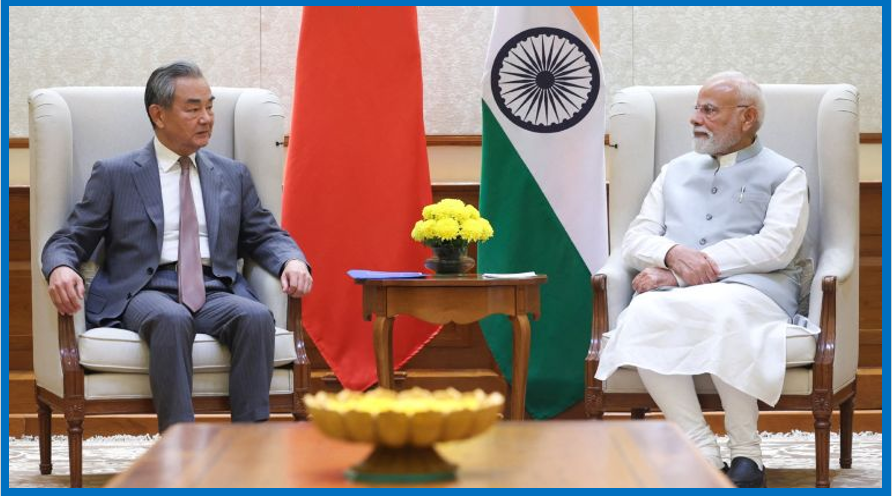New Delhi, August 20, 2025 — Chinese Foreign Minister Wang Yi concluded a high-level diplomatic visit to India from August 18 to 19, aimed at restoring bilateral ties, advancing border negotiations, and preparing for Prime Minister Narendra Modi’s upcoming participation in the Shanghai Cooperation Organisation (SCO) Summit in Tianjin.
📅 Timeline of the Visit
| Date | Engagement |
|---|---|
| August 18 | Arrival in New Delhi; bilateral talks with External Affairs Minister S. Jaishankar |
| August 19 | 24th round of Special Representatives’ (SR) Talks with NSA Ajit Doval |
| August 19 | Meeting with Prime Minister Narendra Modi at his residence |
| August 20 | Departure for Pakistan to attend China-Pakistan Strategic Dialogue |
🎯 Purpose of the Visit
Wang Yi’s visit served multiple strategic objectives:
1. Reviving Border Dialogue
- Co-chaired the 24th round of SR Talks with India’s National Security Adviser Ajit Doval.
- Focused on de-escalation, delimitation, and dispute resolution along the Line of Actual Control (LAC).
- Aimed to consolidate progress made since the October 2024 disengagement agreement at Demchok and Depsang.
2. Strengthening Bilateral Relations
- Held bilateral discussions with Foreign Minister S. Jaishankar to address:
- Trade and investment flows
- Resumption of direct flights between India and China
- Restoration of border trade through Lipulekh, Shipki La, and Nathu La passes
- Cooperation on river data sharing and pilgrimage routes to Tibet
3. Setting the Stage for SCO Summit
- Delivered an invitation from President Xi Jinping to Prime Minister Modi for the SCO Heads of State Council meeting in Tianjin (August 31–September 1).
- Discussed the summit agenda and potential bilateral meetings with Chinese and Russian leaders.
4. Geopolitical Rebalancing
- Visit occurred amid rising tensions between India and the United States following steep tariffs imposed by President Donald Trump.
- China expressed support for India’s position on trade fairness and multilateralism, opposing U.S. tariff policies.
🧭 Strategic Significance
This was Wang Yi’s first visit to India since the 2020 Galwan Valley clashes, which severely strained diplomatic ties. The visit marks a cautious thaw in relations and reflects both nations’ intent to stabilize their strategic partnership amid shifting global dynamics.
Prime Minister Modi emphasized the importance of peace and tranquillity along the border and reiterated India’s commitment to a fair and mutually acceptable resolution of the boundary issue.
Foreign Minister Wang Yi and PM Narendra Modi



